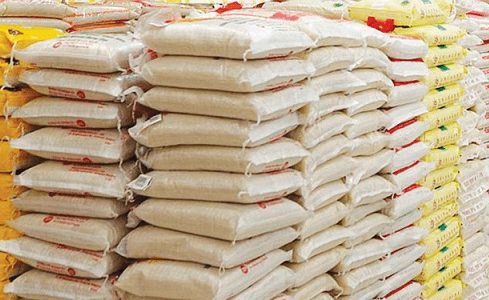Business
Rice Shortage Looms as Farmers Abandon Cultivation Over Rising Costs

- Rice Price goes up again after temporary relief
- Rice Farmers abandon cultivation of the staple food over rising inflation
- Easter, Ramadan Festivities also partly responsible for the sure in price
The relief Nigerians felt just weeks ago when rice prices dropped has faded, as costs have surged again.
- EDITOR’S PICK
- 2025: A Glimmer of Hope Nigeria?
- Trapped in Fear Nigerians Cry Out Over Deportation Policy
- Opeifa: The Railway Man
A 50kg bag of imported short-grain Indian rice, which fell to ₦65,000–₦67,000 in January from ₦90,000 in December, now sells for ₦75,000, with traders predicting further increases.
Meanwhile, a 50kg bag of imported long-grain Thai rice, which had dropped to ₦88,000–₦89,000, has climbed to between ₦92,000 and ₦105,000, depending on the brand.
Locally grown rice has not been spared from the rising costs. A 50kg bag of Bull rice is now priced between ₦84,000 and ₦90,000, while Abakaliki rice sells for ₦84,000 in Ebonyi and Enugu states but exceeds ₦90,000 in major cities due to transportation costs.
While many attributed the price drop last month to the strengthening of the naira and better trade conditions at land borders, investigations at major rice markets in Lagos—Iddo and Daleko—suggest otherwise.
According to Hajia Zannab Yahaya, a major rice dealer at Iddo Market, the decline was a seasonal trend. She explained that the price of rice always falls at the beginning of the year when demand is low because people buy large quantities in December, leading to reduced demand in January.
However, as Ramadan and Easter approach, demand rises again, pushing prices up.
Kayode Ijesha, another rice dealer, confirmed that seasonal demand is driving the surge. He noted that as stocks from December purchases run out and festive periods approach, more people are buying, causing prices to rise.
- FURTHER READING
- Albinism Community Urges Action as Skin Cancer Cases Surge
- FG Extends palliative programme to Support Students, DCT Residents
- Adiyan Water Works Project 80% Completion Excites Sanwo-Olu
Speculation about border restrictions affecting rice prices was dismissed by traders. Ijesha explained that if the land borders were open, the price of imported rice could drop to ₦50,000 per 50kg, but scarcity is the real issue.
Meanwhile, Nigeria’s rice production has reached its lowest level in four years due to rising production costs, insecurity, and climate challenges. The United States Department of Agriculture (USDA) reported a 7% decline in production for the 2024/2025 season, from 5.61 million metric tons (MT) in the previous season to 5.23 million MT. Other estimates suggest an even sharper decline of 15–23%. Farmers have been hardest hit, with rising costs forcing many to reduce their cultivation areas.
Mohammed Augie, a former chairman of the Rice Farmers Association in Kebbi State, lamented the situation, stating that prices for all inputs have increased four or five times, making rice farming unprofitable. Without government intervention, farmers are shifting to less expensive crops. Ahmed Idris, a rice farmer in Jigawa, shared how he reduced his farmland from five hectares to two due to the rising cost of production, explaining that what he spent cultivating five hectares a few years ago can now only cover two hectares.
The suspension of the federal government’s Anchor Borrowers Programme, which previously provided subsidized inputs to farmers, has further worsened the crisis. With millers struggling due to soaring paddy prices—now at ₦70,000–₦80,000 per 80kg bag—many have shut down operations. Despite President Bola Tinubu’s recent import duty waivers for rice paddy, volatile foreign exchange rates have made it difficult for processors to import and sell competitively.
As Nigeria’s rice deficit widens—estimated at 11 million metric tons annually—consumers continue to bear the brunt of rising prices, with no immediate relief in sight.
Click Here For Video of The Week
Advertise or Publish a Story on EkoHot Blog:
Kindly contact us at ekohotblog@gmail.com. Breaking stories should be sent to the above email and substantiated with pictorial evidence.
Citizen journalists will receive a token as data incentive.
Call or Whatsapp: 0803 561 7233, 0703 414 5611



















